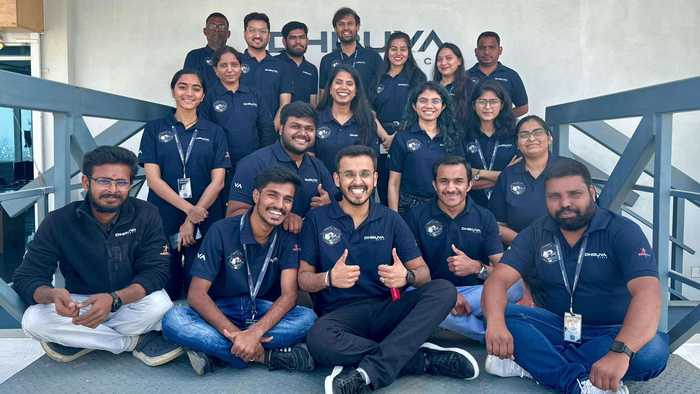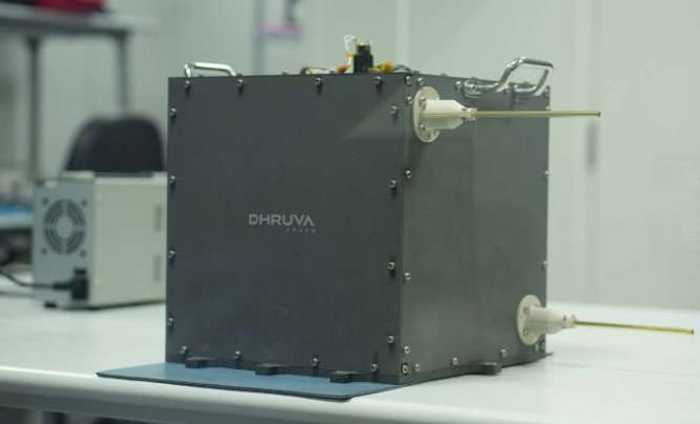Published 18:02 IST, January 3rd 2024
Dhruva Space announces successful validation of LEAP-TD mission on ISRO's PSLV
Dhruva Space announced the validation of its LEAP-TD mission launched aboard ISRO's PSLV Orbital Experimental Module-3 (POEM-3) experiment on January 1.
Advertisement
Dhruva Space, on January 3, announced the successful qualification of its nanosatellite technology that was tested aboard ISRO's PSLV Orbital Experimental Module-3 (POEM-3) experiment.
The POEM-3 is the spent fourth stage of the PSLV rocket that was used as a platform for technology demonstration in space after the rocket's launch on January 1. The Polar Satellite Launch Vehicle (PSLV) lifted off at 9:10 am IST from the Satish Dhawan Space Center, Sriharikota with the X-ray Polarimeter Satellite (XPoSat) as the primary satellite and ten other payloads as secondary ones.
Advertisement

The PSLV is a four-stage non-reusable rocket and the last stage is occasionally remodeled to support telemetry, navigation, tele-command and in-orbit maneuvers in order to carry out technology demonstrations after inserting the primary satellite in the desired orbit.
✅ MISSION SUCCESS
Dhruva Space is open for business as a hosted payload solution provider; declares success of #LEAPTD platform, onboard @isro’s PSLV-C58 POEM-3.
Read more: https://t.co/jbajyKhWmO pic.twitter.com/qyi8V0T8CZ— Dhruva Space (@DhruvaSpace)
Dhruva Space said that the satellite platform and all its subsystems have been validated. The success of its LEAP-TD mission was confirmed after the ground station of Indian Institute of Space Science and Technology (IIST) received telemetry data from the P-30 platform.
Advertisement

In an official release, the Hyderabad-based startup said that the Dhruva Space P-30 satellite platform, part of its LEAP-TD mission, and its various subsystems have been successfully validated using the POEM-3.
Dhruva Space explained the platform (also called hosted payload service) as a portion of the satellite which includes elements like sensor or communication transponders, and operates independently of the main spacecraft. However, this platform shares the satellite's power supply, transponders and in some cases ground systems.
Advertisement
“The success of the LEAP-TD mission demonstrates collaboration across Government and industry partners to advance the paradigm in Space Technology," Dhruva Space CEO Sanjay Nekkanti said in an official statement.
"Dhruva Space’s hosted payload offering enables reduced timelines and rapid access to space, shared operations, development and launch, significant cost savings, considerable risk reduction, and various levels of payload command and control through Dhruva Space’s TT&C ground facilities," he further said.
Advertisement
"The Dhruva Space team has worked diligently to indigenously develop and test the P-30 nanosatellite technology, and the success of the LEAP-TD mission is a testament to their hard work and dedication," added Krishna Teja Penamakuru, the company's Chief Operations Officer.
Apart from Dhruva Space, three other startups - Bellatrix Aerospace, InspeCity Space Labs Private Limited and TakeMe2Space also launched their payloads to be tested on POEM-3. Other payloads included the Women Engineered Satellite (WESAT) developed by Thiruvananthapuram-based LBS Institute of Technology for Women, the KJ Somaiya Institute of Technology, Ahmedabad-based Physical Research Laboratory and ISRO's Vikram Sarabhai Space Centre.
Advertisement
18:00 IST, January 3rd 2024